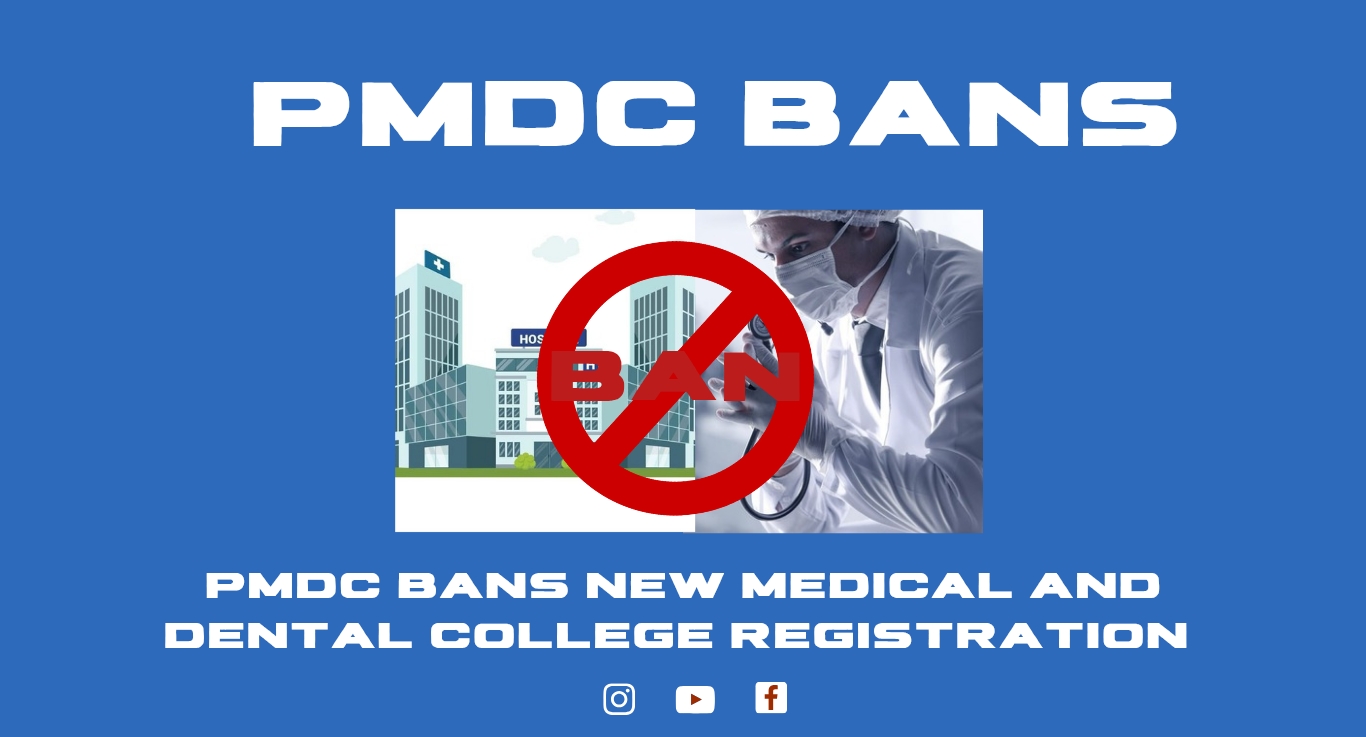PMDC Bans New Medical and Dental College Registrations – A Bold Step for Quality Education
New Medical and Dental College Registration Bans; The Pakistan Medical and Dental Council (PMDC) has completely stopped accepting new medical and dental college applications across Pakistan. The government directed this decisive action, and the PMDC Council fully approved it. The critical shortage of qualified faculty primarily motivated this decision while simultaneously maintaining essential educational standards.
Key Reasons Behind the Ban
The PMDC mainly implemented this registration ban because existing medical and dental colleges currently face severe faculty shortages. Additionally, other crucial factors include:
- The council actively maintains high educational standards and quality healthcare training
- The PMDC effectively prevents substandard institutions from emerging
- The council strongly encourages existing colleges to improve faculty recruitment and infrastructure
Moreover, the PMDC will not consider applications submitted after January 5, while officials still review 13 applications submitted before this deadline. Consequently, this approach ensures existing institutions receive priority focus rather than allowing unregulated expansion.
Current Landscape of Medical and Dental Colleges
Pakistan currently hosts 187 medical and dental colleges, specifically:
- Private Medical Colleges: 121 institutions
- Public Medical Colleges: 66 institutions
As a result, this comprehensive registration ban will likely push existing colleges to focus intensely on quality improvements rather than mere numerical growth.
Implications of the Ban
This PMDC decision creates significant ripple effects for students, institutions, and the healthcare sector throughout Pakistan.
1. Impact on Students
- Students now face fewer options and heightened competition for medical education
- Merit requirements will inevitably rise alongside potential increases in tuition fees
- Existing institutions must accommodate more aspiring medical professionals
2. Impact on Medical Institutions
- Institutions now implement stricter faculty hiring standards
- Colleges increasingly focus on quality infrastructure and teaching methodologies
- New institutions face severely limited opportunities to enter the market
3. Impact on Healthcare Sector
- Pakistan will eventually gain better-trained professionals due to improved educational standards
- The country might experience short-term shortages of new medical graduates
- Patients will ultimately benefit from long-term improvements in healthcare service quality
Reaction from Stakeholders
The PMDC registration ban naturally sparked diverse reactions from various stakeholders, including government officials, medical professionals, and aspiring students.
Government and PMDC’s Standpoint
- Officials consistently emphasize maintaining high educational standards
- The PMDC actively assures that existing colleges will receive encouragement to increase faculty numbers
- Leaders openly acknowledge the necessity to prevent low-quality institutions from operating
Medical Community’s Response
- Supporters firmly believe the ban will effectively curb subpar medical education
- Critics openly worry about limited opportunities and potential faculty crises
- Medical professionals actively suggest increasing faculty development programs to balance quality with accessibility
Student Perspective
- Students express serious concerns over limited seats and increased competition
- Many fear higher tuition fees amid rising demand
- Student groups actively advocate for more public colleges and scholarship opportunities
Addressing Faculty Shortages
Rather than solely relying on registration bans, experts recommend implementing comprehensive faculty development initiatives, specifically:
- Robust training programs to enhance teaching quality
- Strategic international collaboration for faculty exchange programs
- Attractive incentives to encourage skilled professionals to pursue teaching roles
Conclusion
While aspiring students certainly face challenges, this action ultimately safeguards healthcare professional quality nationwide. Therefore, to effectively balance quality with accessibility, the government must substantially invest in faculty development and significantly enhance public medical institutions.
FAQs
-
Why did the PMDC ban new medical and dental college registration?
- The PMDC implemented the ban primarily due to severe qualified faculty shortages that compromise medical education quality.
- Will the PMDC consider existing applications?
- Yes, officials actively review 13 applications submitted before January 5.
-
Medical and dental colleges currently operate in Pakistan?
- 121 private medical colleges and 66 public medical colleges, totaling 187 institutions.
-
How will the registration ban impact students?
- Students now face fewer options, higher competition, and potentially increased tuition fees.
-
What measures do experts suggest to address faculty shortages?
- Experts recommend comprehensive faculty development programs, international collaborations, and improved salary packages.

